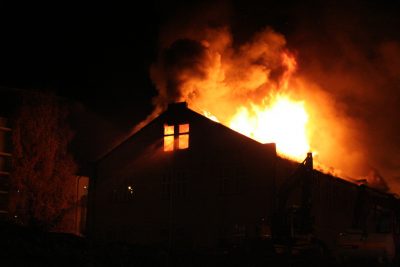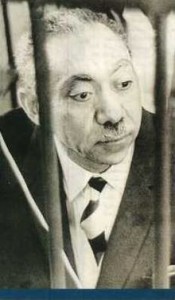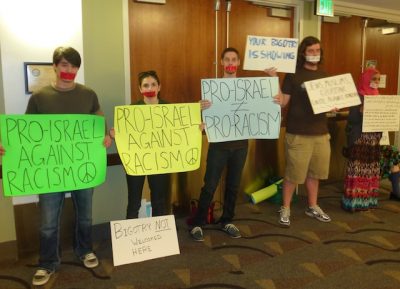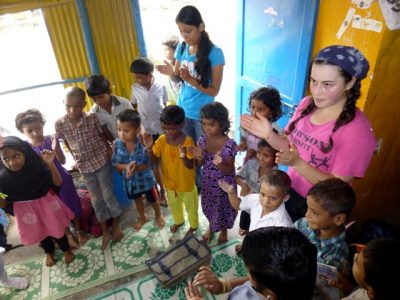Archive
So, Rosh Hashana is over. Your excuse to not go attend classes for “religious reasons” is moot for the next ten days. The crazy fruits have been eaten, the apple-themed shul outfits have been worn, and your ears are a bit hung over from their shofar drunk. But wait, what do you do with all […]
We finally did it. We burned down that horrible, pain-in-the-[insert funny Yiddish-ish word for “ass” here] website. Welcome to the new and improved newvoices.org. And make sure you check out everything this glorious new blog has to offer. If we do this right, the Conspiracy will cover everything you’d expect a cell of the Jewish […]
Those of you who have paid attention to the Conservative Judaism movement in recent months may recall that it is officially, like, so totally inclusive now. As JTA reported when the news broke: “The Conservative movement – affirming that same-sex marriages have ‘the same sense of holiness and joy as that expressed in heterosexual marriages’ — last […]
Ever since a friend made me sit down and watch Adam Curtis’ 2004 documentary film series The Power of Nightmares, I’ve been obsessed with the series’ main thesis. In the series, Curtis argues that neo-conservatism and radical Islamism share core values. The movie follows the ideological development of future Muslim Brotherhood leader Sayyid Qutb as […]
Remember that time when the Zionist Organization of America’s Mort Klein went on a tear about me, observing that I was “young and inexperienced,” and thus unqualified to critique official Jews such as himself? (Here’s what I wrote at the time.) Right on, Mort! We are proud to say we’ve been run for over 40 […]
It’s not every day a Jewish college student gets to announce the commencement of a new (or is it the continuation of a millennia-old?) media conspiracy. So we intend to do so with great pride and pomp. Insofar as such, heretofore and wherewithal: Welcome, one and all! To those coming from far, from near, from […]
It was shocking enough to read that a protest against Islamophobia was being organized at Portland State University. When I found out that a pro-Israel group had invited the speaker being protested, my jaw dropped.
I’m on a Middle East Studies listserv at school. During May, I received an e-mail inviting me to attend the protest of an appearance by ultra-right-wing Christian Broadcast Network pundit Erick Stakelbeck.
Stakelbeck’s blog and articles are overwhelmingly anti-Islamic. He once called Dearborn, Michigan “Dearbornistan” because of its large Muslim minority. It was also disturbing that Stakelbeck’s appearance was sponsored by a pro-Israel group, Christians United for Israel. CUFI is an evangelical Christian Zionist group; Stakelbeck holds similar views. Stakelbeck uses the Jewish people and our home, Israel, as a platform for his discriminatory, vitriolic position.
It’s been 11 years since the day that shook America to the core, with aftershocks felt by every country around the world. In these 11 years, our country has changed: It’s grown harder and more cautious, but at the same time stronger and more understanding. We’ve gone to war, and worked to end the wars. […]
THANE, India– Inside the narrow alleys of the Kalwa slum, past the shanties abutting the train tracks and the stray pig rummaging through garbage scraps, Pramila Mane rattles her rice dish and gently blows on the kernels on the second floor of her home. Across the room, Shayna Lebovic, 19, a volunteer with the Gabriel Project Mumbai, a Jewish nonprofit working to reduce hunger and provide educational services in Kalwa, crouches in front of a small chopping board diligently chopping onions.
Mane, a member of a local women’s group partnered with the Gabriel Project, and Lebovic would not be cooking partners in this enclave north of Mumbai were it not for Jacob Sztokman. The director and founder of the Gabriel Project, Sztokman toured the Dharavi slum during a business trip to Mumbai in 2011 while working for a data security company. Sztokman, 42, did not visit just to pay homage to the slum that inspired “Slum Dog Millionaire.” While doing research prior to the trip, he watched YouTube videos and read up on poverty in India and felt inspired to work in the slums.






